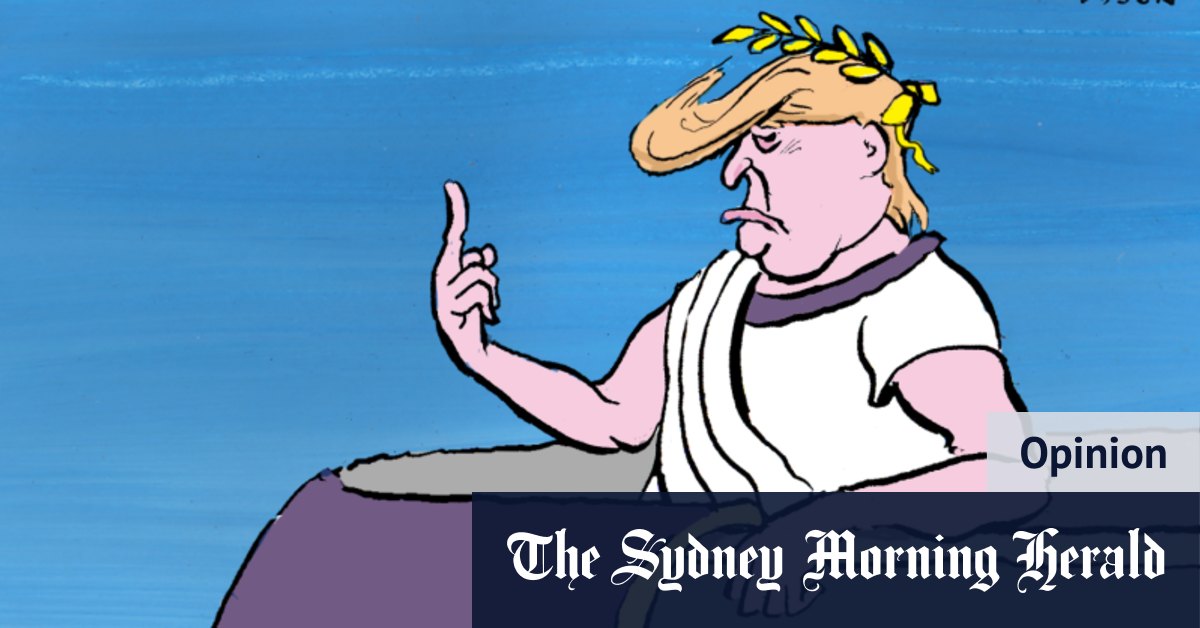Australia
Emperor Donald can pretty much do whatever he wants to whomever he wants

Donald Trump’s Legal Battles and Authoritarian Impulses
Donald Trump’s ongoing legal struggles have been a defining feature of his presidency and post-presidency. His defiance of the legal system was evident when he refused to acknowledge the results of the 2020 election, even inciting a mob to disrupt the certification process, jeopardizing his own vice president’s safety. This authoritarian tendency was further highlighted when he clashed with Maine Governor Janet Mills over a transgender athlete ban. Trump’s threat to withhold federal funding unless compliance was met underscored his willingness to use executive power coercively. Governor Mills’ defiance and Trump’s personal, demeaning response illustrated his intolerance of opposition and his penchant for personal attacks.
Disdain for Critics and the Media
Trump’s disdain for critics and the media is well-documented. He mocked Volodymyr Zelensky, labeling him a "modestly successful comedian," revealing his inability to tolerate criticism. When The Associated Press refused to rename the Gulf of Mexico, Trump barred them from covering events, prompting a lawsuit. The AP defended press freedom, emphasizing the dangers of government retaliation. This episode showcased Trump’s authoritarian approach to media relations, where dissent is met with reprisal.
Imperialistic Ambitions and Megalomania
Trump’s imperialistic musings, such as taking over the Panama Canal, Greenland, and other territories, reflect a grandiosity reminiscent of historical figures. His interest in Ukraine’s mineral rights and other regions suggests a megalomaniacal worldview. These ambitions, combined with his domineering leadership style, paint a picture of a leader who sees himself above accountability, driven by personal whim rather than policy or diplomacy.
Cracks in Republican Unity
Despite his hold on the party, Trump faces internal criticism, particularly regarding Russia. Republicans like J.D. Vance and Pete Hegseth have sided with Trump against traditional conservative foreign policy views. However, dissent exists; some lawmakers oppose Trump’s stance on Ukraine, fearing it undermines U.S. leadership. This internal conflict highlights growing tensions within the Republican Party over Trump’s influence and policies.
Historical Parallels to Leadership Style
Parallels between Trump and Caligula, as noted in Josiah Osgood’s book, reveal similar leadership traits: impulsive decisions and cruel verbal attacks. Caligula’s humiliation of senators mirrors Trump’s treatment of opponents, exemplified by his confrontation with Governor Mills. Trump’s use of public shaming and personal attacks erodes respect for institutions, drawing comparisons to ancient autocrats who relished power and control.
The State of American Institutions and Politics
The state of American institutions and politics grows increasingly fraught. Public backlash over government actions and economic policies reflects widespread dissatisfaction. The weakness of political parties—Democrats appearing ineffective and Republicans fearful of opposing Trump—leaves a vacuum that Trump exploits. Observers worry about the resilience of democratic institutions in the face of such challenges, emphasizing the need for vigilance and political engagement to safeguard democracy.











